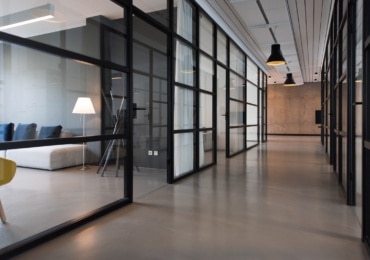A difficult decision that business owners need to make is whether to buy or lease their place of business. There are many factors that need to be considered when deliberating between each option. Below you will find a list of pros and cons for buying and leasing commercial real estate. As a result, you will be able to effectively weigh each option against your current business conditions. Our goal is to help you make the most appropriate decision moving forward.
Buying
Pros:
- Equity. Your property equity will increase over time given that its value increases. In turn, owning will give you the option of selling in the future. Ultimately, you will have the opportunity to make a profit.
- Asset Appreciation. If you want to build your personal wealth, purchasing commercial real estate is a great investment.
- Control. Owning property will free you from having to chase after your landlord when you encounter a problem. In turn, you will be more efficient in handling any issues that arise. Similarly, you won’t be facing as many restrictions or limits. This includes rent increases.
- Costly Current Leasehold Improvements. You may find that it makes more sense to purchase a property if you’re heavily investing in a building to operate your business.
- Balance. If your property purchase is well financed, you might find that your monthly outlay is lower than paying for rent. In turn, you can focus more capital into building and growing your business. Your goal is to balance your growth with cash flow.
Cons:
- Location. Prime locations on busier streets with more driving and foot traffic are generally not listed for sale. Therefore, this may hinder the potential success of your business.
- Repairs and Maintenance. Purchasing a property frees you from some landlord woes, but in exchange, you are left responsible for handling any repairs, issues, and maintenance.
- Recession. Although owning real estate is generally known to be a great investment, you run the risk of losing value if a recession occurs.
- Rising Interest Rates. Be mindful of the increased costs associated with higher interest rates. As a result, seek information on market trends or help from an industry expert prior to purchasing.
- Lack of Flexibility. Because purchasing a property is a long-term investment, be certain that your business possesses the cash flow and stability needed to support this commitment.
- Due Diligence. As mentioned in the previous blog post, you must invest capital and time into performing your due diligence prior to purchasing. This will certainly save you from future stress regarding hidden building defects, legal considerations, environmental factors, etc. In addition, a lawyer will be extremely helpful in protecting you from issues revolving around land title, outstanding taxes, liens, zoning, etc.
Leasing
Pros:
- Lack of Working Capital. If you are unable to financially commit in the long-run to purchasing a property, opting to lease is probably the best route to take.
- Flexibility. In the event that your business needs are unstable, leasing a space is advisable. Essentially, if your business is experiencing rapid growth or perhaps in the midst of downsizing, you probably shouldn’t be purchasing until you’ve found some stability or established your needs. Lease terms are typically less than 10 years. As a result, this allows you to adapt more easily and quickly with regards to space.
- Avoid Repairs and Maintenance. As mentioned under the cons of buying commercial property, you will be responsible for handling any issues related to the space. This may detract some focus from your business. Therefore, if you want to solely focus on building and growing your business, let a landlord take care of the problems and choose to lease.
Cons:
- Lack of Flexibility. Flexibility works both ways. Unfortunately, landlords have the right to refuse a request to renew a lease. As a result, you may be forced to relocate your business.
- Lack of Control. Because you do not own the space, your landlord may have restrictions that limit your ability to use the space. In turn, your business plan could be heavily impacted.
- Loss of Equity Opportunity. Unlike buying a property, your monthly rental payments are not going towards ownership.
- Lack of Certainty. Landowners may increase rent for a variety of reasons. This acts as a financial planning obstacle as it affects your ability to budget in the long-run.
Regardless of whether you choose to buy or lease a commercial space, seek legal counsel. At Sodagar & Co, we will review your contract to prevent unpleasant surprises in the future. In addition, we will help you bridge the gap between your business needs and the commercial real estate options presented to you.


